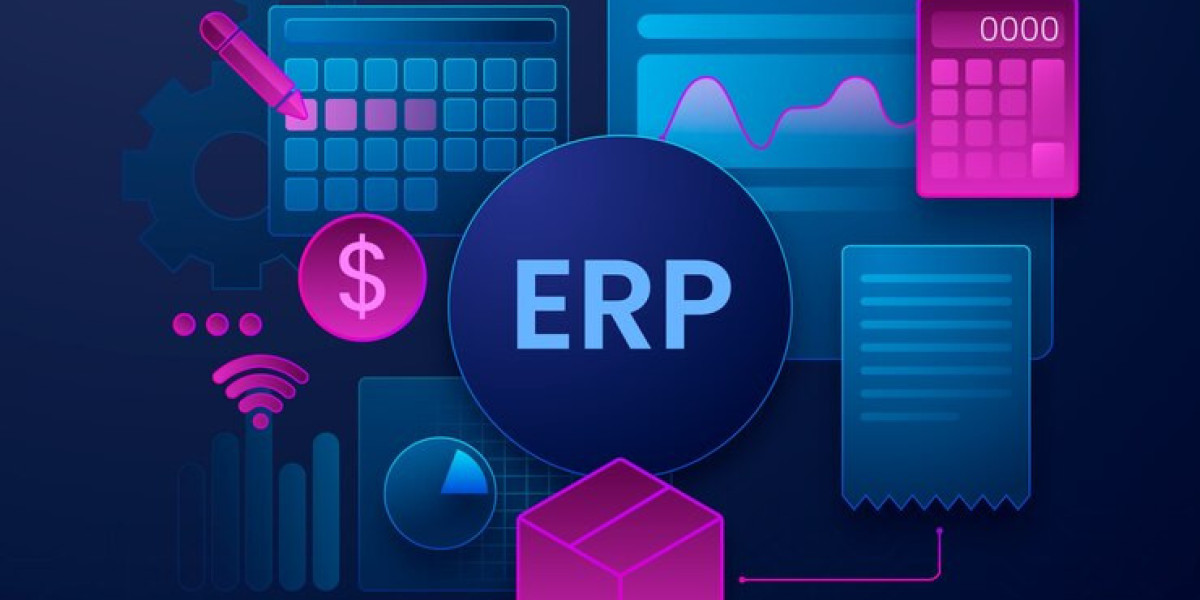Introduction
In the evolving landscape of business management, one system has consistently stood out for its ability to streamline operations, enhance productivity, and enable real-time decision-making—the ERP system. Short for Enterprise Resource Planning, ERP refers to integrated software that manages and automates core business processes in real time.
Globally adopted by industries of all sizes, ERP systems have rapidly gained traction in the Kingdom of Saudi Arabia (KSA), thanks to its aggressive digital transformation goals under Vision 2030. From small retailers to large industrial corporations, the shift to digital infrastructure is being fueled by ERP adoption.
In this blog post, we’ll explore the importance of ERP systems, their growing influence in Saudi Arabia, and how businesses can strategically implement these systems to maximize operational success.
? What is an ERP System?
An ERP system is a unified software platform that brings together multiple business processes into one comprehensive solution. These systems help manage areas such as:
Accounting and Finance
Inventory Management
Human Resources
Supply Chain
Customer Relationship Management (CRM)
Procurement and Purchasing
Manufacturing and Production
? Key Features of an ERP System
| Feature | Functionality |
|---|---|
| Centralized Database | Single source of truth for all departments |
| Automation | Reduces manual entry and repetitive tasks |
| Real-time Reporting | Dashboards and analytics for decision-making |
| Scalability | Adaptable to business growth |
| Integration Capabilities | Connects with third-party apps like CRM, eCommerce, or POS |
| Role-based Access Control | Ensures data security across departments |
Modern ERP systems are cloud-based, mobile-friendly, and AI-enabled, making them highly efficient and user-centric.
? ERP System in Saudi Arabia
?? The Digital Transformation Underway
Saudi Arabia is undergoing a national transformation, aiming to reduce its oil dependency and become a tech-powered economy. One of the key tools aiding this shift is the widespread adoption of ERP systems.
Under Vision 2030, Saudi organizations are investing in digital platforms that ensure transparency, governance, and data-driven decisions. ERP is at the center of these digital operations.
? Key Sectors Implementing ERP Systems in Saudi Arabia
Healthcare
Patient data management, hospital inventory, payroll, and compliance.
Education
University management, student records, staff scheduling, and budgeting.
Manufacturing
Supply chain automation, production tracking, and quality control.
Retail & E-Commerce
Inventory, POS systems, CRM, and multi-channel operations.
Public Sector
Budgeting, asset tracking, procurement, and HR automation.
? Leading ERP Vendors in Saudi Arabia
| ERP Vendor | Description |
|---|---|
| SAP | Widely used by large corporations and government |
| Odoo | Modular, open-source ERP system ideal for SMEs |
| Oracle ERP | Cloud-focused system for large enterprise needs |
| Microsoft Dynamics 365 | Integration with other MS tools |
| Zoho ERP | Affordable and cloud-native solution for startups |
?️ Benefits of Implementing an ERP System in Saudi Arabia
Enhanced Productivity
Automation frees employees to focus on strategic tasks.Real-Time Data Access
Improves forecasting, planning, and decision-making.Regulatory Compliance
Helps meet local standards including ZATCA e-invoicing.Operational Visibility
Tracks every aspect of the business through one platform.Improved Customer Experience
Accurate order processing, faster delivery, and better CRM.Scalability
Easily accommodates growth and business diversification.
?️ ERP Implementation Strategy
To make the most of your ERP investment, follow these proven steps:
1. Needs Assessment
Understand the pain points in your current system and the goals you aim to achieve with ERP.
2. Vendor Selection
Choose a provider that aligns with your business size, industry, and growth roadmap.
3. Process Mapping
Document existing processes and identify which can be streamlined or automated.
4. Customization
Configure the system to meet your unique operational needs.
5. Data Migration
Clean and transfer existing data into the ERP.
6. Training & Onboarding
Educate your team to ensure full adoption and proper use.
7. Continuous Monitoring
Analyze results post-deployment and refine system usage accordingly.
? Common Challenges with ERP Systems
High Initial Costs
While ERP saves money in the long run, upfront costs can be intimidating.
Resistance to Change
Teams used to manual systems may resist automation.
Time-Consuming Implementation
ERP deployment can take weeks to months, depending on complexity.
Customization Complexity
Over-customization can delay timelines and increase cost.
✅ Solution: Work with a local ERP consultant or partner familiar with regulations and business culture in Saudi Arabia.
?️ ERP in Saudi SMEs vs Enterprises
| Business Type | ERP Focus Areas |
|---|---|
| SMEs | Inventory, accounting, sales, HR |
| Enterprises | Advanced modules like manufacturing, BI, CRM |
While SMEs focus on cost-effective and easy-to-use solutions like Odoo or Zoho, larger enterprises prefer robust systems like SAP S/4HANA or Oracle ERP Cloud.
? Future of ERP in Saudi Arabia
AI & Machine Learning
ERP systems will suggest actions based on historical data trends.Blockchain Integration
Transparent and secure supply chain tracking.Mobile ERP
Entire business operations accessible via mobile apps.Arabic-first Interfaces
Localization of ERP systems with RTL (Right-to-Left) support.Regulatory Integration
Seamless support for ZATCA, NITA, and Vision 2030 KPIs.
✅ Case Study: A Riyadh Retail Chain
Problem: Inconsistent inventory across 5 branches
Solution: Deployed Odoo ERP with inventory, sales, and POS modules
Result:
70% reduction in stockouts
Real-time visibility across stores
40% increase in monthly revenue
? ERP Metrics to Track Post-Deployment
| KPI | Description |
|---|---|
| Inventory Turnover | Measures how fast inventory moves |
| Order Processing Time | Time taken to fulfill customer orders |
| Employee Productivity Rate | Work completed per staff member |
| System Uptime | Reliability of the ERP software |
| Customer Satisfaction Score | Impact on service and support quality |
? Conclusion
The rise of digital infrastructure in Saudi Arabia makes ERP systems a strategic necessity, not a luxury. From small businesses in Riyadh to multi-nationals in Jeddah, companies are turning to ERP platforms to drive performance, reduce costs, and ensure compliance.
Whether you're choosing Odoo, SAP, Oracle, or Zoho, the real power lies in customizing the ERP system to your business workflow and training your team to harness its full potential.
ERP systems are no longer the future of business—they are the present necessity. Make the smart transition today.
❓ FAQs
1. What is the best ERP system for small businesses in Saudi Arabia?
Odoo and Zoho ERP are great for SMEs due to their modular structure and lower costs.
2. How long does ERP implementation take in Saudi Arabia?
It typically takes between 3 to 6 months, depending on the business size and customization needs.
3. Is ERP mandatory in Saudi Arabia?
While ERP itself isn’t mandatory, digital invoicing compliance (ZATCA) and VAT reporting often require an integrated software system like ERP.
4. Can ERP systems support bilingual (Arabic & English) interfaces?
Yes, most modern ERP solutions support multi-language environments, including Arabic with RTL support.
5. What’s the cost of ERP system implementation in Saudi Arabia?
Costs vary from SAR 10,000 to SAR 500,000+, based on modules, number of users, and whether it's cloud-based or on-premise.







